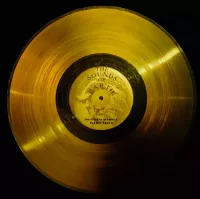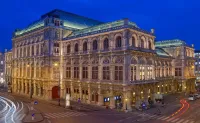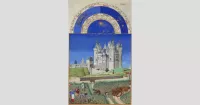Graz is the capital of Styria, Austria, and the country's second-largest city. Its population was over 306,000 in 2025, with a larger urban zone of over 660,000 in 2023. Graz is a prominent university city, hosting four colleges and four universities with over 60,000 students. The city's historic center (Altstadt) is one of the best-preserved in Central Europe.
1909: Otto Loewi at the University of Graz
From 1909, Nobel laureate Otto Loewi taught at the University of Graz.
1919: University of Ljubljana Establishment
Until the establishment of the University of Ljubljana in 1919, Graz was a centre of Slovene culture from the establishment of the University of Graz in 1586.
1936: Erwin Schrödinger at the University of Graz
In 1936, Erwin Schrödinger was briefly chancellor of the University of Graz.
1938: Otto Loewi at the University of Graz
Until 1938, Nobel laureate Otto Loewi taught at the University of Graz.
April 1945: Massacre at Graz-Wetzelsdorf
On 2 April 1945, during the heaviest Allied bomb raid of Graz, the Gestapo and Waffen-SS committed a massacre against resistance fighters, Hungarian-Jewish forced laborers, and POWs at the SS barracks at Graz-Wetzelsdorf.
1961: Ivo Andrić Nobel Prize
In 1961, Ivo Andrić, the Nobel Prize for Literature laureate, obtained his doctorate at the University of Graz.
1965: Graz School Founded
In 1965 the Graz School (Grazer Schule) was founded.
1975: ATSE Graz Wins Austrian Hockey League
In 1975, ATSE Graz was the Austrian Hockey League champion.
1978: ATSE Graz Wins Austrian Hockey League
In 1978, ATSE Graz was the Austrian Hockey League champion.
1985: Styriarte founded
In 1985, the annual festival of classical music Styriarte was founded.
1995: Olympic Bid
In 1995, Graz bid for the 2002 Winter Olympics.
1999: UNESCO World Heritage List
In 1999, the historic centre of Graz was added to the UNESCO World Heritage List.
1999: Historic Centre added to UNESCO list
In 1999, the historic centre of Graz was added to the UNESCO list of World Heritage Sites.
2000: SK Sturm Graz Promoted to Round of 16
In 2000/01, SK Sturm Graz were 1st in the first group stage of the Champions League and therefore got promoted to the round of 16 as the first Austrian club ever.
2000: Graz 99ers Plays in First Division
Since 2000, Graz 99ers has played in the first division of the Austrian Hockey League.
2002: Lost Olympic Election
The city of Graz bid for the 2002 Winter Olympics, but lost the election to Salt Lake City.
2003: Projects Realized Before Becoming European Capital of Culture
Before Graz became European Capital of Culture in 2003, several new projects were realized, such as the Stadthalle, the Children's Museum (Kindermuseum), the Helmut-List-Halle, the Museum of Contemporary Art (Kunsthaus) and the Island in the Mur (Murinsel).
2003: European Capital of Culture
During 2003 Graz held the title of "European Capital of Culture".
2003: Austrian People's Party overtakes SPÖ
In 2003, the Austrian People's Party (ÖVP) overtook the Social Democratic Party of Austria (SPÖ) as the largest party in the city council.
2005: KPÖ enters Styrian provincial parliament
In 2005, the KPÖ entered the Styrian provincial parliament for the first time in 35 years.
2007: Grazer AK Administration
In 2007, Grazer AK went into administration and was excluded from the professional league system.
2008: City of Culinary Delights
In 2008, Graz became a City of Culinary Delights.
2008: Communist Party of Austria Decline
In 2008, The Communist Party of Austria (KPÖ) vote share fell to 11.2% in the local election.
2008: Scho wieda Steirisch g'redt Initiative
In 2008, the Grazer ORF launched an initiative called Scho wieda Steirisch g'redt to highlight the dialects of Graz and Styria.
2010: Symposium on Graz and the Slovenes
In 2010, a symposium on the relation of Graz and the Slovenes was held in Graz, at the occasion of the 200th anniversary of the establishment of the first and oldest chair of Slovene.
2010: KPÖ retains seats
In 2010, the KPÖ retained their seats in the Styrian provincial parliament.
2010: Eggenberg Palace designation
In 2010, the UNESCO designation was expanded to include Eggenberg Palace.
2012: Communist Party of Austria Recovery
In 2012, the Communist Party of Austria (KPÖ) recovered and became the second most popular party in Graz with 19.9% of the vote.
2015: KPÖ retains seats
In 2015, the KPÖ retained their seats in the Styrian provincial parliament.
2017: Communist Party of Austria Vote Share
In 2017, the Communist Party of Austria (KPÖ) maintained its popularity in Graz, securing 20.3% of the vote.
2019: KPÖ retains seats
In 2019, the KPÖ retained their seats in the Styrian provincial parliament.
September 2021: City council election
On 26 September 2021, a city council election was held in Graz.
2021: Metro system proposed
In 2021 a two-line metro system was proposed for Graz, which would make Graz the second Austrian city with a rapid transit system after Vienna.
2021: KPÖ becomes largest party
In 2021, the KPÖ became the largest party in Graz, and Elke Kahr was elected mayor in November.
2023: Graz Larger Urban Zone Population
In 2023, the population of the Graz larger urban zone stood at 660,238.
January 2025: Graz Population
As of 1 January 2025, the city of Graz had a total population of 306,068, with 71% being Austrian citizens, 14% EU citizens, and 15% non-EU nationals.
Mentioned in this timeline

Music is a cultural universal involving the arrangement of sound...

Vienna the capital and most populous city of Austria boasts...
UNESCO is a specialized agency of the United Nations UN...

September is the ninth month of the year in the...
Austria is a landlocked country in Central Europe situated in...

An election is a structured decision-making process where a population...
Trending

21 minutes ago Kevin Fiala injured during Switzerland vs. Canada Olympics game, stretchered off ice.
21 minutes ago Bride integrates Bad Bunny Super Bowl halftime into wedding; Republicans react to performance.

21 minutes ago Brewers sign Luis Rengifo to a one-year deal, adding infield depth.

1 hour ago Presidents' Day Sales: Early Deals on Amazon, Apple, Carhartt, and Sealy products.
1 hour ago Kazakhstan Faces Scrutiny Over Extradition and Asylum Decisions Involving Russian Activists

1 hour ago Yuma Kagiyama aims for gold at 2026 Winter Olympics with quad flip.
Popular

Kid Rock born Robert James Ritchie is an American musician...
The Winter Olympic Games a major international multi-sport event held...

Barack Obama the th U S President - was the...

XXXTentacion born Jahseh Dwayne Ricardo Onfroy was a controversial yet...

Pam Bondi is an American attorney lobbyist and politician currently...

Michelle Obama is an American attorney author and former First...